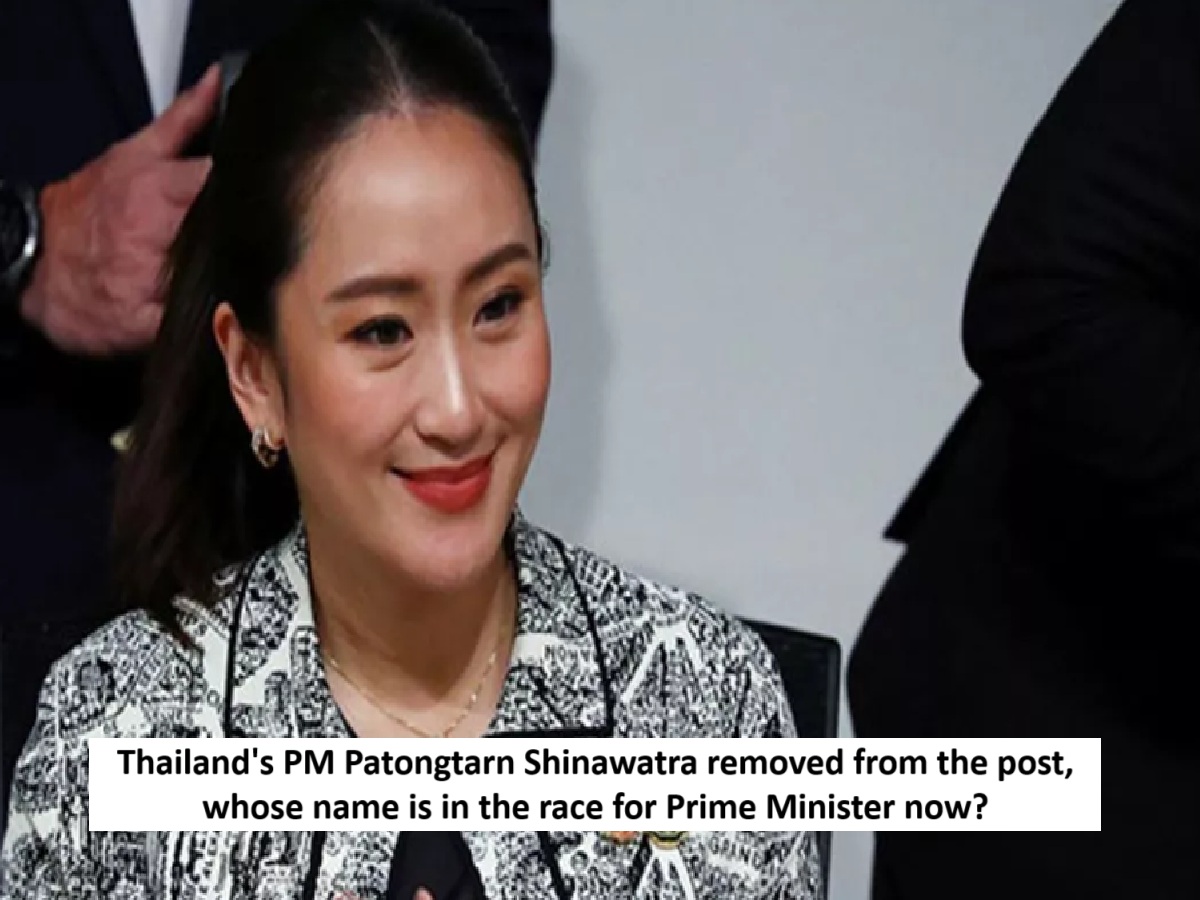
News Topical, Digital Desk : After the dismissal of the Prime Minister, a political crisis has started to appear in Thailand. After one year of coming to power, Prime Minister Patongtarn Shinawatra was dismissed by the court on charges of moral violation, after which the country's faltering economy has got stuck in a phase of even more uncertainty.
Now the question arises that what will happen next in Thailand? At present, after the dismissal of Patongtarn Shinawatra, Deputy Prime Minister Phumtham Vechayachai has been made the acting Prime Minister. He will look after the government until the Parliament elects a new Prime Minister.
Big opportunity for buying and selling
The court ruling has opened the way for bargaining and horse-trading among political parties and other power-brokers, with Patongtarn's powerful father, former Prime Minister Thaksin Shinawatra, the billionaire founder of his Pheu Thai party, as the main player.
The stakes are high, as the ruling coalition has a slim majority of only seven seats, meaning any allegiance away from the coalition could be costly for Pheu Thai and the Shinawatra political dynasty.
Who all are in the race for the post of Prime Minister?
Of the previously declared candidates for the 2023 elections, there are now five candidates left who could contest the PM post. Pheu Thai initially had three candidates, but now only one candidate remains, 77-year-old Chaikasem Nithisiri, a former justice minister and attorney general who has so far been little discussed, but has said he is ready to come forward.
Another possibility is Anutin Charnvirakul, 58, a former home minister and deputy prime minister whose Bhumjaithai party broke away from Patongtarn’s coalition in June.
Current Energy Minister Pirapanan Salirathvibhaga, former Deputy Prime Minister Jurin Laksanawisit and former Prime Minister Prayuth Chan-ocha, a general who led a coup against the previous Pheu Thai government in 2014, are also candidates. Prayuth, 71, has retired from politics and is currently a royal adviser.
What is the required number to become the Prime Minister?
To become prime minister, it is necessary to get the support of more than half of the current 492 members of the lower house, i.e. 247 votes. Before voting in the house, a candidate needs the support of 50 MPs. If the candidate loses the election, the house will have to meet again and this process will be repeated for any other nominated candidate until the prime minister is elected. There is no time limit for this process.
What is the political equation?
Pheu Thai's chances of retaining the prime ministership through Chaiyakasem will largely depend on whether Thaksin, despite the dismissal of Patongtarn, is still able to reach a compromise with Thailand's conservative establishment, which has far-reaching political influence and could easily thwart his plans.
If elections are held before time then the way will open for People's Party
Although the old guard has a difficult history with Thaksin, some analysts say they see him as the lesser of two evils. The weakening of Thaksin's power could trigger early elections and open the door to the People's Party, a progressive and hugely popular opposition whose institutional reform agenda threatens the interests of conservatives and the monarchy and military.
Despite his limited political experience, Chaikasem as prime minister could be an acceptable temporary solution, but he would struggle to implement reforms or energise a sluggish economy. Political uncertainty could grow and the economic outlook could remain gloomy for some time.
Read More: Pakistan-Afghanistan declares war, Pak claims 133 Taliban fighters killed
--Advertisement--

 Share
Share



